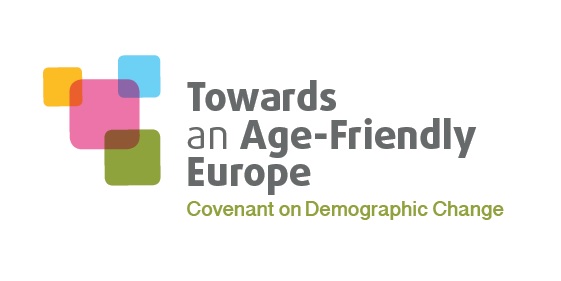by Anne-Sophie Parent
Despite decades of analysis, policy responses to Europe’s rapid population ageing have focused almost exclusively on the survival of national social protection systems. This is too narrow.
Rising dependency ratios (the ratio of people aged 65+ to those aged 15 – 64) certainly need attention, but population ageing brings a whole host of new policy challenges with it. The European Covenant on Demographic Change can help Europe identify and tackle them.
Launched in December 2015 by the EU AFE-INNOVET thematic network (funded by the European Commission’s ICT policy support programme), the Covenant’s objective is to mobilise a wide range of local authorities and relevant stakeholders across the EU to take action promoting longer worker lives, and healthier and more autonomous old age. It supports the WHO’s holistic approach to active ageing and considers age-friendly environments to be one of the best ways to empower older people to remain actively engaged in the labour market and in their communities—and thus to lead independent lives for as long as possible.
Membership is open to all local, regional and national authorities, research centres and universities, civil society organisations, large companies, and SMEs that feel they have a role to play in the creation of age-friendly environments in employment, transport, the built environment, urban planning, health and long-term care services, mainstream goods and services, new technologies, or any other area of life.
By joining, Covenant members commit to sharing the same vision of a society for all ages, to launching an action plan on age-friendly environments within two years, and to sharing their experience with other Covenant members.

The Covenant primarily works virtually and seizes all relevant opportunities at the EU and national level to organise meetings and foster exchanges. This includes, but is certainly not limited to, the EU Committee of Regions’ Open Days in October or EU Presidency events.
Membership criteria are fully aligned with the WHO Global network of Age-Friendly Cities and Communities, and local authorities that join the Covenant as full members can indicate their wish to join the WHO Age-Friendly World through their Covenant application.
Already, 135 public authorities and stakeholders have committed to removing existing barriers that prevent persons of all ages with functional limitations from participating in society on an equal basis, to enabling everyone to age in better health, and to supporting longer independent lives. They strongly believe that age-friendly environments will not only improve the quality of life of our ageing populations, but will also help lower the pressure on public health and care budgets, create new jobs, and boost the silver economy, enabling our societies to better cope with population ageing in ways that are sustainable and fair to all generations.
Links:
About the author:
Anne-Sophie Parent, Secretary General, AGE Platform Europe and European Covenant on Demographic Change, Brussels/Belgium.